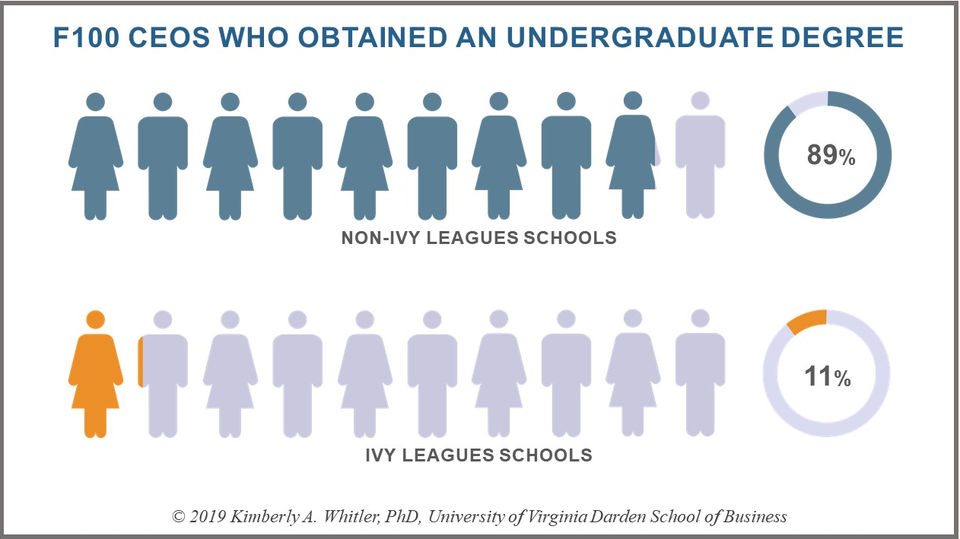One of the biggest concerns parents bring to us is that they want their child to go to a “good” school. When pressed to define what “good” means, name recognition– prestige– tends to emerge. “Top” schools with impressive alumni, well-manicured lawns, the whole nine yards.
We get it. Prestige is associated with success, with value, with a feeling of having ascended to great heights. It’s a powerful feeling.
But when push comes to shove, does it really matter?
The answer is complicated, but data suggests prestige of university doesn’t necessarily make a difference in who gets ahead in the long run. Take this article from Forbes, for example: “For parents and students who believe getting into an Ivy League school is a requirement for success, the educational paths of the F100 CEOs suggest otherwise. Of the F100 CEOs who obtained an undergraduate degree (yes, some did not complete college), a dominant 89% graduated from non-Ivy League schools with only 11% having attended an Ivy League school. Forty-seven percent of the F100 graduates came from state schools (e.g., University of Illinois, University of Minnesota, University of Texas, etc.) while 53% came from other schools.”
When we become singularly focused on prestige, we can miss out on other opportunities.
Take, for example a student we worked with years ago. By April of his senior year, his choice was down to two schools: Indiana University, a solid state school, or Middlebury College, an elite private liberal arts school in Vermont. Both are outstanding schools, each in their own ways. IU, “just a state school,” offered our student a full ride. Middlebury offered him financial aid but would have cost him about another $25K a year. Influential people in his life were pushing for Middlebury, but his parents told him the decision was up to him.
So we talked about it. In the end, he realized attending Middlebury would be great, but that it would put him $100,000 in debt even before grad school, which he knew he planned to attend. When he stood back and reflected on the opportunity presented by IU in comparison, the decision was a no-brainer. His education at “just a state school” launched him to Georgetown Law, from which he graduated with only law school debt.
Please don’t get us wrong: we aren’t anti-Ivy League/highly selective by any means! However, we think it’s important for students and families to really evaluate their goals and where they come from, especially as it concerns undergraduate programs. (We fully acknowledge name prestige and name recognition matter a little more for graduate school.) Direct Admit programs, honors colleges, and experiential education opportunities make a huge difference, and colleges all over the country are innovating their undergrad programs in exciting ways.
Ultimately, students can be successful just about anywhere with a few key qualities that will take them far in life: integrity, drive, and a willingness to network with an open mind.

